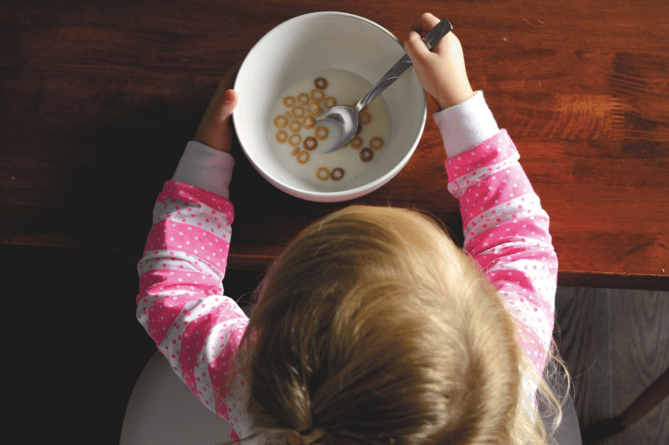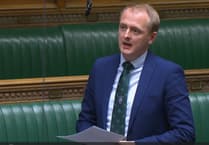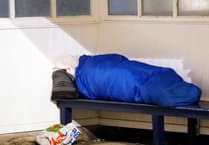The Welsh Government must overcome an aversion to setting targets on tackling child poverty, the Senedd heard.
Jenny Rathbone led a debate on the equality committee’s report which critiqued the Welsh Government’s draft child poverty strategy.
She stressed that child poverty is not a new problem and nor is it unique to Wales.
The Cardiff Central MS pointed out that only Northern Ireland and London have seen a bigger reduction in child poverty than Wales.
But Ms Rathbone said the committee heard the draft strategy lacked ambition and shied away from establishing clear lines of accountability.
The Labour backbencher echoed the NSPCC’s calls for the Welsh Government to focus on what it can do to address child poverty despite many powers being held by Westminster.
‘Unease’
She said: “There was widespread, bordering on universal unease at the lack of targets and milestones within the draft strategy.
“The committee shared the view of our witnesses and are clear that the Welsh Government must overcome its aversion to setting targets.
“Because the evidence from Scotland and New Zealand is absolutely clear: targets work.
“We want to see challenging but realistic targets, both interim and longer term, which could play an important role in focusing minds and measuring progress.”
Sioned Williams, the Plaid Cymru MS for South Wales West, backed calls for clear interim and long-term targets to tackle child poverty.
She told MSs: “There is a risk in creating strategies. We can all agree on the problem a strategy is trying to tackle. We can all agree on solutions.
“What is most important, though, is ownership and delivery, and that’s why we need targets.”
She criticised a £3.5m cut to the Welsh Government’s baby bundle scheme.
‘Crisis’
Altaf Hussain, for the Conservatives, highlighted the children’s commissioner’s depiction of the Welsh Government’s plans to tackle poverty as lacking ambition, clarity and detail.
He said: “Child poverty in Wales is a long-standing crisis, and we need a coherent and robust child strategy with over one in four children in Wales living in poverty.”
Jane Dodds, who worked as a child protection social worker for around 20 years, said 90 per cent of the cases she worked with were children living in poverty.
The Lib Dem said: “That's why I came into politics, because I could work every day, every hour, trying to help families and children. But I wanted to change the system.”
She criticised ministers for not accepting the report’s six recommendations in full, saying: “28 per cent of children in Wales are living in poverty. This is not something we should tolerate.
“So, firstly, let's have targets. Why the hesitancy? Why not be politically courageous and bold and have timelines for how we reduce that?”
‘Misguided’
On calls for a dedicated minister, Ms Dodds described the idea of tackling poverty and children’s rights being an all-of government responsibility as totally misguided.
“Where everyone is responsible, no-one is responsible,” she said.
“Diffusing child poverty across portfolios only seeks to obscure accountability and ensures failure goes unaddressed.”
Ms Dodds said Scotland, New Zealand, Ireland, Finland and Australia have dedicated ministers and child poverty rates ranging from 12-16%.
Sarah Murphy warned that the Resolution Foundation expects UK child poverty to be at its highest rate for 30 years by 2027-28 unless action is taken.
The Labour MS for Bridgend reiterated the committee’s call for a dedicated minister during the debate on Wednesday, 10 January.
“I really do feel it's crucial,” she said. “We've had it before, we should have it again.
“I think it would send a clear message; I think it would also set out how important this is.”
‘Insidious’
Jayne Bryant, the Labour MS for Newport West, said there are more children and young people living in poverty than any other age group in Wales.
Ms Bryant, who chairs the Senedd children’s committee, said: “The impact poverty has on all aspects of children's and young people's lives is insidious and laid out starkly in the report.
“Child mortality rates are higher; children living in poverty are four times more likely than their peers to develop a mental health problem by the age of 11;
“They are much less likely to do well at school, and poverty means that children are at greater risk of neglect and more likely to be removed from their parents.”
Jane Hutt told MSs that the new child poverty strategy will be launched on 23 January.
Wales’ social justice minister stressed that she is taking lead responsibility for child poverty but every minister has a duty under the UN Convention on the Rights of the Child.
She said the Welsh Government is seeking independent advice on national poverty indicators and data availability as part of a monitoring framework.
On the same day, the Senedd debated a Plaid Cymru motion on child poverty and educational attainment, which called for free school meals to be extended.
MSs voted down the proposal by 10-39 before the motion, as amended by the Welsh Government, was agreed by a single vote.




